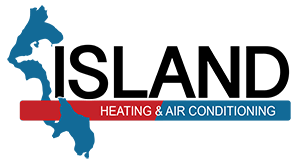Roughly 90% of American homes are outfitted with heating, cooling, and ventilation systems. Despite how common residential central air systems are, many people perpetuate myths about heating and cooling. Interested in uncovering the truth behind what you’ve heard? Look no further! This short guide will shine a light on several oh-so-common air conditioning and heating myths you may have come across.
1. Ceiling and Box Fans Reduce Indoor Temperature
You’d be hard-pressed to find a home without at least one fan. These devices use electric power to spin fan blades, circulating air in the process. Box and ceiling fans both use the same power conversion processes to move air around. Ceiling fans also serve a decorative purpose for homeowners.
Most people have heard that fans make indoor spaces cooler. You’ve probably deduced this “fact” on your own. While fans can make you feel cooler, they don’t lower the temperature indoors. If anything, due to the release of energy by fans, they make indoor spaces hotter. In actuality, however, this effect is negligible.
As you know, your body sweats to release heat. Evaporation is responsible for transferring heat from your body to your immediate environment. Water’s rate of evaporation increases as the wind blows faster. Fans make you feel cooler because they cause your sweat to evaporate faster.
The cooling sensation provided by fans is known as the wind-chill effect. You’ve probably heard weathercasters talk about wind chill before. Whether the air is blown by natural forces or ceiling fans, the concept of wind chill remains the same.
2. The Larger My HVAC Unit, the Better
When it comes to heating and cooling, size matters. It’s important to remember that a larger HVAC system isn’t always better.
HVAC systems that are too large for your home are prone to short-cycling. To start, your thermostat will tell your external heating and cooling system to heat or cool the air. Thanks to your oversized unit’s power, the thermostat will incorrectly tell it to stop running. Shortly after shutting off, your HVAC unit will turn on again, only to be prematurely stopped by your thermostat.
The short-cycling process can have severe implications. Unable to function properly, your HVAC unit is prone to a short life and frequent repairs. Your household’s utility bills will undoubtedly increase. Of course, larger HVAC units cost more than smaller ones, taking more money out of your pocket. Lastly, your home won’t be heated or cooled evenly.
Properly determining your home’s specific HVAC needs is important. HVAC companies like us, Island Heating & Air Conditioning in Oak Harbor, WA, use in-depth calculations to determine your home’s heat gain. We take important factors that are often overlooked into consideration, including your home’s relation to the Sun, how many windows it has, and how good your insulation is.
3. Set Thermostats to Lower Temperatures to Cool Down Faster
Thermostats achieve different temperature levels by instructing HVAC units to cool or heat air more frequently or for longer periods of time. HVAC units only cool air on one temperature.
Setting your thermostat to a lower temperature than desired won’t make your home cooler any faster. Rather, it can place stress on your system, shortening its lifespan. It can also increase your utility bill significantly.
4. Closing Vents Will Cut Your Utility Bill
Central HVAC systems evenly disperse heated and cooled air throughout homes via a network of insulated ducts. Metal vents, often found on floors, connect these ducts to your home. They serve a dual purpose: fashionably covering up holes and keeping unwanted objects out of ducts.
Household members’ indoor temperature and ventilation preferences often differ. Growing up, you may have been scolded for adjusting the thermostat. Your parents may have told you to close your room’s vents if you weren’t comfortable with the thermostat setting.
Some people shut vents as an energy-saving measure, too. Central heating and cooling systems can’t detect closed vents. Therefore, manually shutting off vents won’t save any energy. In fact, this practice can increase your home’s energy bills.
Your HVAC system will work harder to circulate air past closed vents. This increased load will increase energy consumption, causing higher electricity bills. Closing vents can even damage your home’s ductwork and HVAC unit, shortening their working lives and creating the need for repairs.
5. Air Filters Only Need to Be Changed Annually
If you’re like most people, you don’t change your air filters as often as you should. A common rule of thumb for HVAC filters is to change them once a year. However, this is not often enough.
Annual air filter replacements can cause HVAC damage, poor air quality, and increased electricity consumption. Always change them once every three months. This is the standard recommendation among HVAC professionals.
Are you still confused about heating and air conditioning? Leave the heavy lifting up to the highly trained team at Island Heating & Air Conditioning in Oak Harbor, WA. Check out our website or give us a call today. We offer comprehensive heating and cooling services. We look forward to serving your indoor home comfort needs.
Tags: heating and cooling, HVACTags: HVAC
October 20, 2020 8:52 pm

